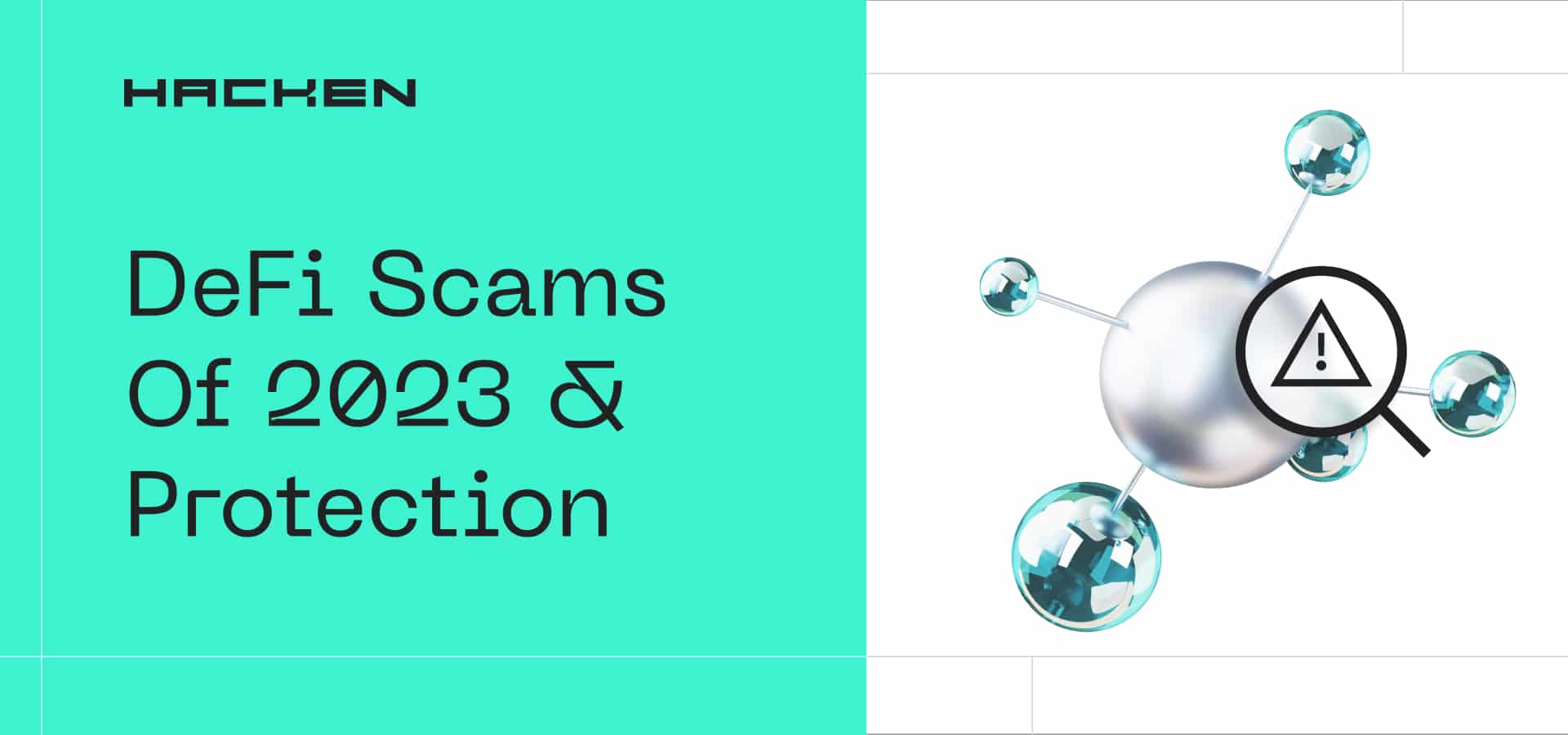The DeFi landscape, while brimming with potential, is not without its pitfalls. As the sector has expanded, so too have the scams that prey on the unsuspecting.
In 2023, the losses from crypto scams reached a staggering $1 billion, reminding us of the importance of vigilance. Here’s a look at the most prevalent scams this year and how you can protect yourself.
Rug Pulls & Pump-and-Dump Schemes
Both strategies are types of exit scam. They involve malicious actors hyping up a project to attract investments. In a rug pull, once they’ve gathered enough funds, founders disappear, leaving investors with nothing. Rug pulls often come with sudden changes in smart contracts and tokenomics to withdraw liquidity. In Q3 2023 alone, the average cost of rug pull amounted to $639 thousand, with a total stolen value at nearly $50 million.
Pump-and-dump schemes involve artificially inflating the price of a token and then selling off large amounts, causing the price to crash and investors to suffer losses. A glaring example from 2023 is the Fintoch scam. Masquerading as a legitimate DeFi platform backed by Morgan Stanley, Fintoch defrauded users of $31.6 million. The deceit went to the extent of hiring an actor to pose as its CEO. This incident underscores the critical importance of due diligence in the volatile DeFi arena.
Phishing Attacks
In 2023, phishing scammers stole nearly $20 million from Web3 projects, not accounting for the funds stolen from regular users. Scammers often impersonate legitimate platforms, tricking users into revealing sensitive details. A notable case from 2023 involved a Coinbase employee. The attacker used an SMS phishing campaign, urging staff to log in for an “important message.” One employee, unfortunately, entered their credentials on a fake login page. Though the scammer couldn’t access the system due to multi-factor authentication, the attempt itself is a reminder of the constant vigilance required in the DeFi space. Always double-check sources and never share private keys or credentials.
Dusting Attacks
In a dusting attack, scammers send tiny amounts of cryptocurrency (dust) to numerous DeFi wallets. Once these coins are sold or moved, they act as trackers, revealing transactions associated with that wallet. The primary goal is to de-anonymize wallets and target accounts with significant holdings for future attacks.
Airdrop Scams
Airdrop scams lure users with the promise of free tokens. A recent incident involved Upbit, South Korea’s leading cryptocurrency exchange. Upbit mistakenly accepted scam tokens from a deceptive site, “ClaimAPT.com,” thinking they were legitimate Aptos (APT) tokens. This error resulted in an unintended deposit of about $250 in affected accounts. Alarmingly, a slight change in the scam token’s code could have inflated this amount to a staggering $25,000 for each user.
Another variation of this scam can target DeFi projects issuing airdrops. Malicious crypto traders create multiple accounts, thereby gaining more tokens. These “sybil” attacks capitalize on projects’ inability to identify fake accounts. In 2023 Arbitrum airdrop, 48% of all distributed tokens went to sybil clusters controlling more than 20 addresses,
Social Media Crypto Scams
Social media platforms have become hotbeds for crypto scammers. According to FTC, nearly 23,000 Americans who reported scam since 2021 said it originated from social media. Scammers frequently masquerade as renowned personalities, influencers, or even official crypto entities, dangling the carrot of giveaways or enticing investment deals. One widespread ruse is the “double your crypto” scheme, where users are coaxed into sending a nominal amount of cryptocurrency with the assurance of getting double or more in return.
How To Avoid Losing Crypto In DeFi?
Navigating the DeFi world requires both enthusiasm and caution. Here’s a deeper dive into securing your crypto assets:
- Embrace Multi-Sig Wallets. These wallets, which require multiple signatures for transactions, add an extra layer of security, they also democratize decision-making in group investments or DAOs. They align with best practices in wallet security, emphasizing the importance of robust protective measures in the crypto space.
- Continuous Learning. Joining reputable communities isn’t enough; actively participate in webinars, workshops, and hackathons. Staying informed about the latest threats can help you avoid them.
- Trusted Platforms. Beyond checking for smart contract audits, delve into who conducted the audit. Not all audit firms are created equal. Platforms audited by top-tier firms offer a higher degree of trustworthiness.
- Double-Check, Then Trust. In an age of deepfakes and sophisticated phishing, double-checking URLs or email sources isn’t enough. Use tools like Metamask or hardware wallets that warn users if they’re connecting to a known malicious site.
- Community Research. Consider joining or forming smaller mastermind groups. These groups often share in-depth research and insights, which can be invaluable.
- Diversify Your Assets. Don’t put all your eggs in one basket. Diversify your investments across platforms and protocols. If one platform faces issues, your entire portfolio isn’t at risk.
In the DeFi universe, the line between success and setback can be razor-thin. To ensure you’re on the right side of that line, it’s essential to arm yourself with the best resources. This detailed guide on DeFi security is a prime example, offering a wealth of knowledge to navigate the space safely. Always be proactive, stay informed, and most importantly, never stop learning.
DisClamier: This content is informational and should not be considered financial advice. The views expressed in this article may include the author's personal opinions and do not reflect The Crypto Basic opinion. Readers are encouraged to do thorough research before making any investment decisions. The Crypto Basic is not responsible for any financial losses.



